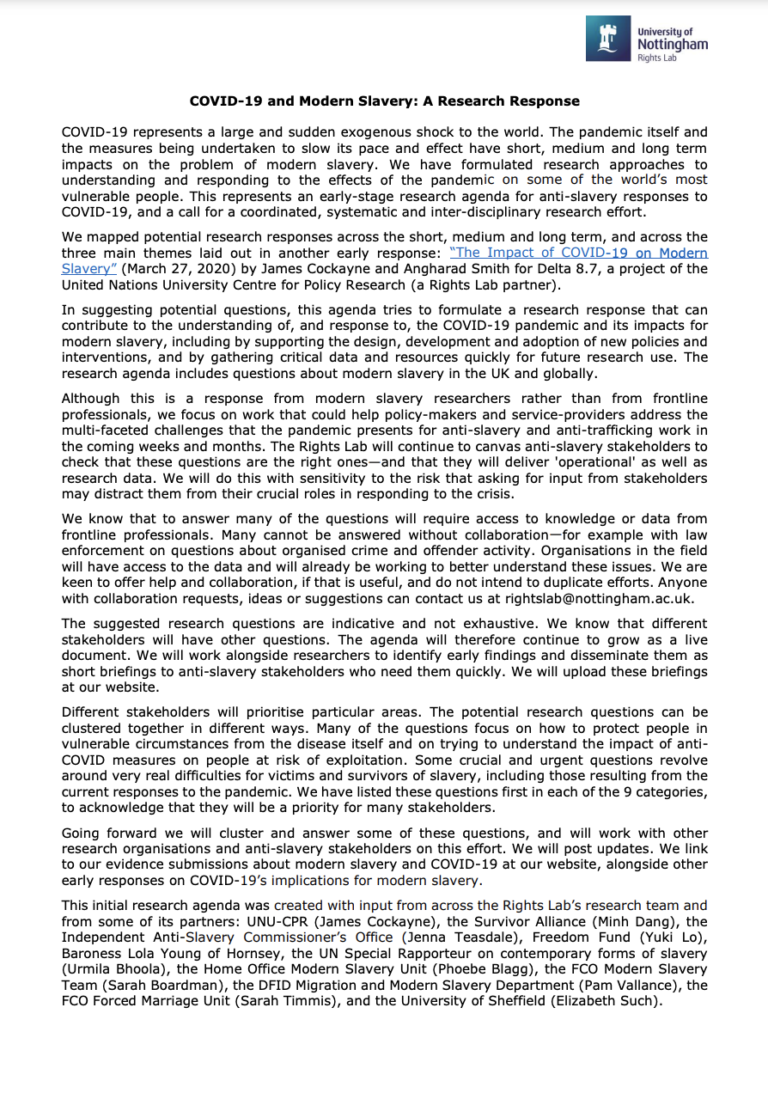Study on due diligence requirements through the supply chain
PublicationsThis study for the European Commission focuses on due diligence requirements to identify, prevent, mitigate and account for abuses of human rights, including the rights of the child and fundamental freedoms, serious bodily injury or health risks, en...Read More

